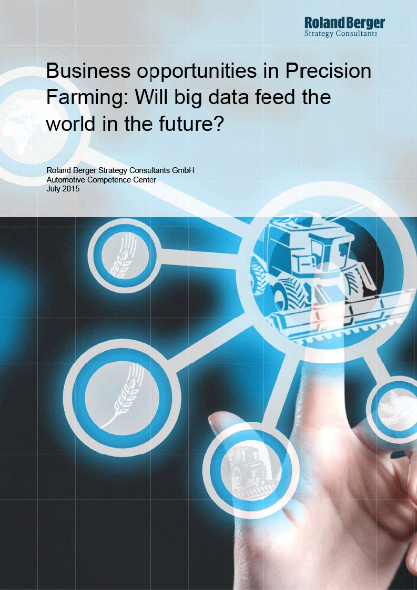Business opportunities in Precision Farming
![{[downloads[language].preview]}](https://www.rolandberger.com/publications/publication_image/cover_businessopportunitiesinprecisionfarming_download_preview.png)
Will big data feed the world in the future?


The rising scale of global population growth, especially in developing countries, goes hand in hand with an inexorable increase in global demand for agricultural products. Limited availability of new productive land, climate change, and stricter regulations serve to ratchet up the pressure on efficiency and effectiveness in the agricultural sector even more. One of the main responses to these challenges comes in the form of precision farming, modern technologies that enable more efficient management of agricultural land.

The rising scale of global population growth, especially in developing countries, goes hand in hand with an inexorable increase in global demand for agricultural products. Limited availability of new productive land, climate change, and stricter regulations serve to ratchet up the pressure on efficiency and effectiveness in the agricultural sector even more. One of the main responses to these challenges comes in the form of precision farming, modern technologies that enable more efficient management of agricultural land.
In 2014, the market for precision farming—including hardware and software—was already worth 2.3 billion euros. Between now and 2020, we can anticipate a compound annual growth rate (CAGR) of 12%, making precision farming just as much a source of future revenue as increased future farming yields. Our study into the business opportunities of precision farming takes an in-depth look at the global market, how technology will develop between now and 2030, and presents five innovative business opportunities along the agricultural value chain: integrator roles, private investment and commodity trading, and service providing for machine or seed related activities or business intelligence.


![{[downloads[language].preview]}](https://www.rolandberger.com/publications/publication_image/cover_businessopportunitiesinprecisionfarming_download_preview.png)
Will big data feed the world in the future?